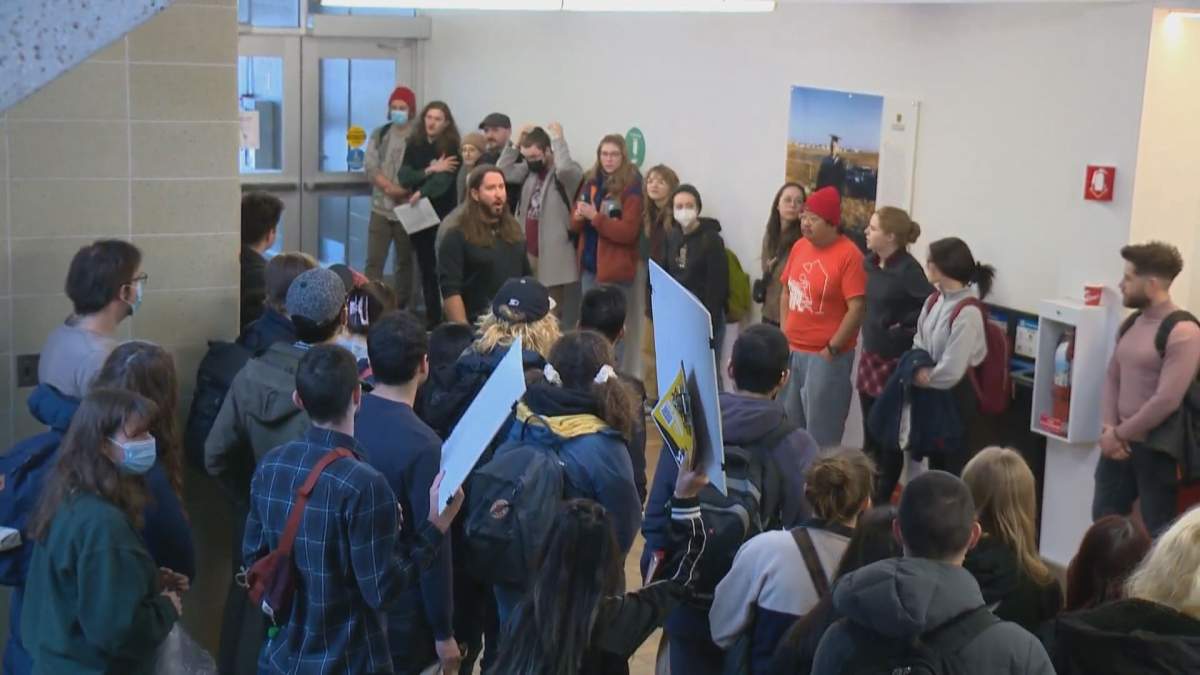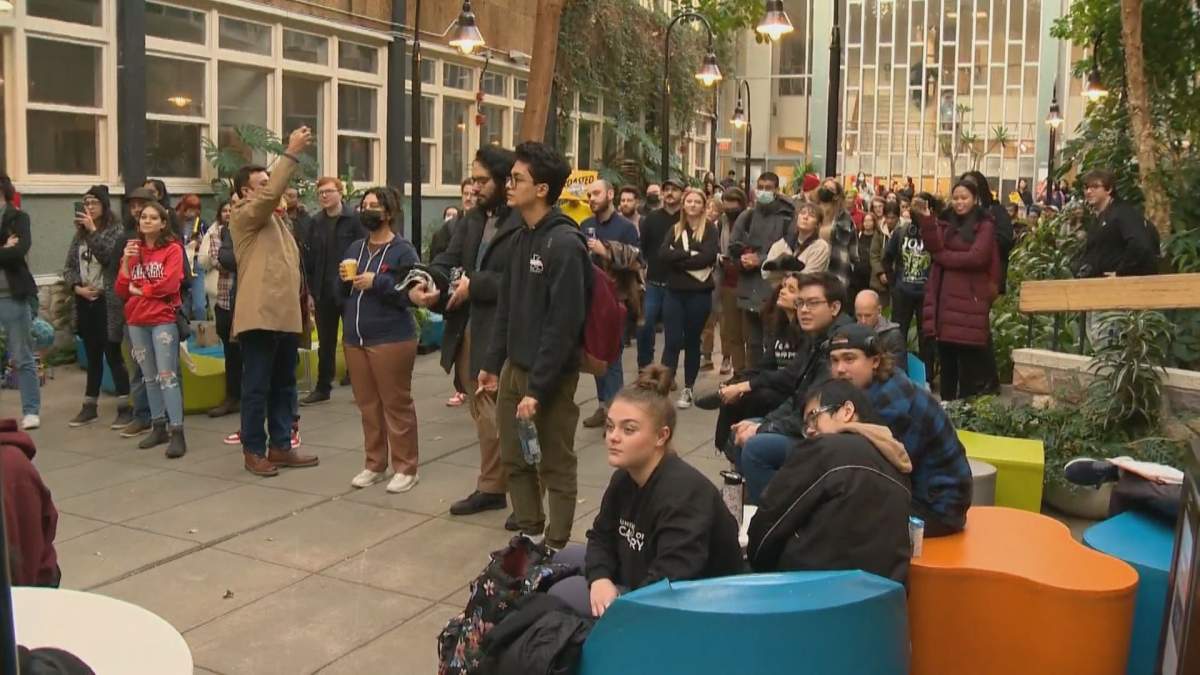Frustrated and angry shouts were heard on the University of Calgary campus Friday as students protested the fourth consecutive tuition hike.

According to a presentation at a town hall on Dec. 7, most domestic undergraduate students will see a 5.5 per cent increase in their tuition fees next year, an almost 33 per cent increase since 2019.
Nursing students, however, will see an eight per cent increase. The University of Calgary’s board of governors first proposed a 10 per cent increase to nursing student tuition but dropped it to eight per cent following student input.
International undergraduate students will see an eight to 10 per cent increase in their tuition fees depending on their program, except for Schulich School of Engineering students.
Domestic graduate students will see a two per cent increase, while international graduate students will see increases between two to 10 per cent depending on their program.
But the school’s students’ union said the student body wasn’t adequately consulted, nor were they provided transparent reports on where the money is going.
“Students are at a breaking point. More and more of us are unable to afford or are choosing between food or shelter and the cost of our education,” said Mateusz Salmassi, vice-president of external relations for the University of Calgary Students’ Union.

Get weekly money news
“To add insult to injury, the university refused to consult students in a timely manner. We need meaningful consultation. We need transparency.”

Salmassi added financial support for struggling students is extremely limited. There are emergency bursaries, grants and scholarships students can apply for but they often don’t cover all the costs incurred during the semester or year.
The provincial government can also do more to help students, he said, such as eliminating interest on student loans.
British Columbia, New Brunswick, Manitoba, and Newfoundland and Labrador currently do not collect interest on provincial student loans. The federal government also eliminated student loan interest last November.
“Young Albertans and students have been left out of the government’s inflationary support measures. The least the university can do is to consult their students transparently,” the student union executive said.
“They held a 60-minute town hall right around exam time last semester and called that a robust consultation. That is not robust. That is insulting.”

Paula Romero, a first-year international student, said the tuition hike will impact her and her family in Venezuela.
“The difference between domestic and international student tuition is already huge… When we got the news, we knew it is going to economically impact our families and our future,” Romero said.
“We are always thinking about the sacrifices our parents went through to put us through education.”
Brianna Pelechytik, a second-year kinesiology student, said school is already expensive on top of her health-related expenses. Pelechytik said she has a chronic illness, which already makes school challenging.
“I’m really worried and I’m so passionate about what I’m studying… The thought of not being able to do it terrifies me,” she said.
“I love Calgary. I love this school… I am a student with a chronic illness and tuition hikes aren’t going to work for me.”

Penny Werthner, interim provost for the University of Calgary, said the school did everything it could to consult students about the tuition increases.
She said she finds the protests “distressful” because the university does care about students’ well-being and education.
“We’ve been consulting students since August,” Werthner told reporters on Friday.
“We do care very much about our students. The reason we are here is because we care for our students and our mandate is to create a good education for them.”
Werthner added that until the provincial government increases its financial support to post-secondary institutions, the university is forced to increase tuition to provide good-quality education to students.
“We had a tuition freeze for five years and then the Alberta government allowed tuition increases to be above the consumer price index,” she said.
“Now they’ve capped it at the consumer price index, which was a conversation with student representatives. A year ago, (the student representatives) asked for tuition increases to be capped.”










Comments
Want to discuss? Please read our Commenting Policy first.